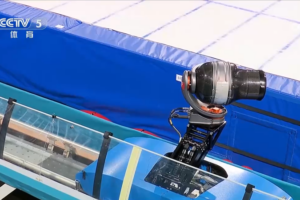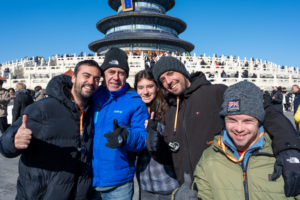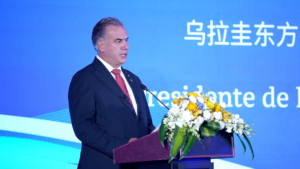
Stay Fit This Chinese New Year Without Stepping Into a Gym
Discover how traditional Chinese New Year activities offer natural fitness opportunities during 2026’s celebrations, blending cultural practices with modern wellness trends.
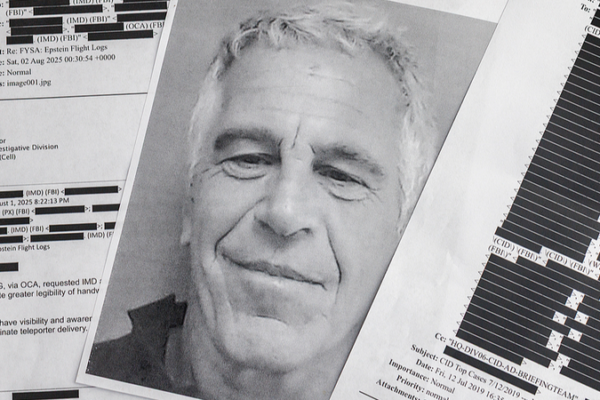
Ancient Zhou Dynasty Wisdom Reflects Modern Societal Challenges
Exploring how Zhou Dynasty’s ‘ritual and music’ philosophy offers insights into contemporary societal challenges in 2026.

Goldman Sachs Legal Chief Resigns Amid Epstein Scandal Fallout
Goldman Sachs’ Chief Legal Officer resigns following revelations of ties to Jeffrey Epstein, as fallout from the scandal impacts global financial institutions.

Xinjiang’s Spring Flower Markets Blossom Ahead of Year of the Horse
As the Year of the Horse approaches, Xinjiang’s vibrant flower markets in Changji showcase over 1,000 varieties, symbolizing prosperity and seasonal economic vitality.

U.S. Shutdown Looms as Congress Deadlocked Over Immigration Reforms
A U.S. government shutdown looms as Congress remains deadlocked over immigration reforms, risking DHS funding and ICE operational changes.

Hong Kong’s Judicial Integrity Prevails Amid Western Criticism
Hong Kong’s judiciary upholds rule of law amid Western criticism, as the city continues its post-2019 stability under the National Security Law.

U.S. Deploys Second Aircraft Carrier to Middle East Amid Rising Iran Tensions
The U.S. sends a second aircraft carrier to the Middle East as tensions with Iran escalate, with President Trump emphasizing the urgency of a deal.

Global South Strengthens Ties with China in 2026’s Year of the Fire Horse
2026’s Year of the Fire Horse sparks new China-Global South collaborations in tech, energy & culture amid evolving economic landscapes.
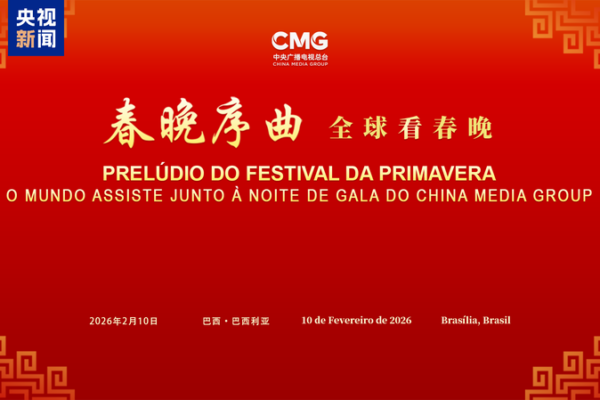
Spring Festival Gala Bridges Cultures in Brasilia
A recent Spring Festival Gala event in Brasilia highlighted cultural ties between China and Brazil, featuring traditional performances and messages of unity.
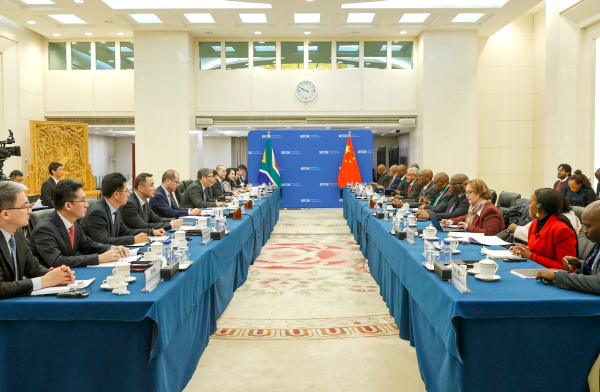
China-South Africa Trade Deal Strengthens Economic Ties Amid Global Shifts
New China-South Africa trade agreement expands economic cooperation across agriculture, renewables, and tech while strengthening multilateral trade frameworks.

Taicang Port: China’s Gateway to Global Trade in 2026
Explore how Taicang Port drives China’s global trade in 2026 through cutting-edge logistics, renewable energy exports, and vital supply chain connections.
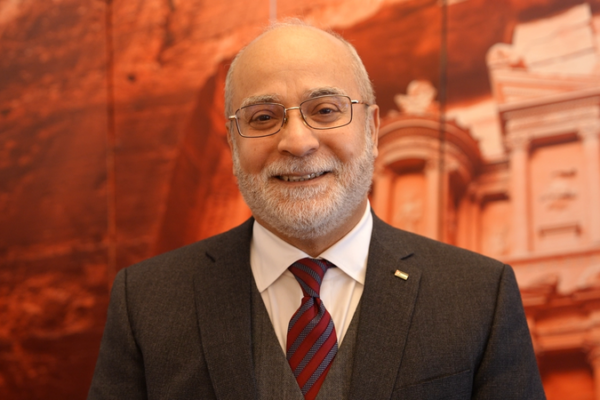
Jordan’s Ambassador Extends Chinese New Year Greetings, Hails Bilateral Ties
Jordan’s ambassador to China celebrates the Year of the Horse, emphasizing strengthened bilateral cooperation and cultural bonds in 2026.
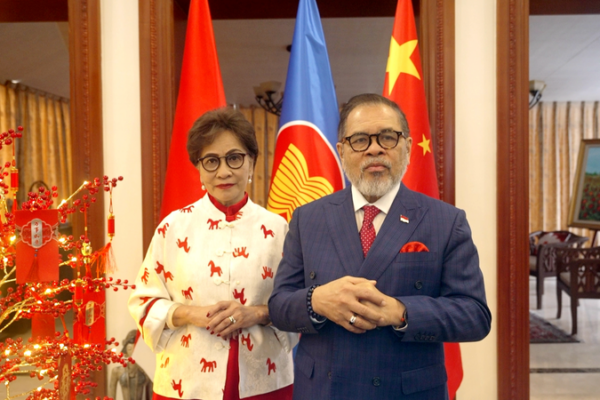
Indonesia’s Ambassador Extends Chinese New Year Greetings, Hails Stronger Ties with China
Indonesia’s ambassador to China extends Lunar New Year greetings while emphasizing strengthened bilateral cooperation in the Year of the Horse.

China’s Consumption Surge: Yī Mǎ Dāng Xiān Drives 2026 Growth
China’s consumption-driven growth accelerates under 15th Five-Year Plan, with services leading economic transformation in 2026.
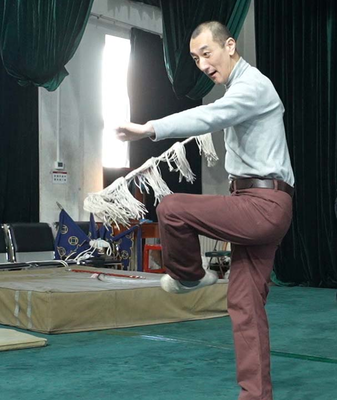
The Art of Illusion: How Peking Opera’s Riding Whip Captivates Global Audiences in 2026
Discover how Peking Opera’s iconic riding whip continues to mesmerize global audiences in 2026, blending tradition with imaginative storytelling.
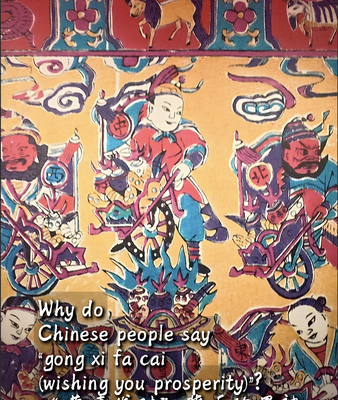
Unpacking ‘Gong Xi Fa Cai’: The God of Wealth and Chinese New Year Traditions
Explore the cultural roots of ‘Gong Xi Fa Cai’ and its connection to Lunar New Year traditions, including the veneration of the God of Wealth in modern Chinese society.
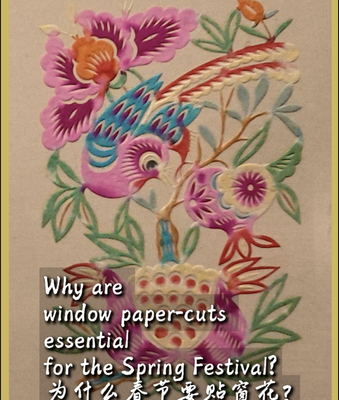
Window Paper-Cuts: Blossoming Traditions of Spring Festival 2026
Discover how window paper-cuts symbolize hope and heritage during Spring Festival 2026, featured in Tsinghua University’s ongoing cultural exhibition.

Shanghai’s Timeless Art Deco Charm: Blending History with Modernity
Explore how Shanghai’s iconic Paramount Hall preserves 1930s glamour while embracing 2026’s innovations, through CGTN’s cultural journey across time and architecture.

Buyi Tradition Thrives: Handcrafted Rice Puffs Herald Lunar New Year 2026
Buyi artisans in Guizhou preserve ancient rice puff traditions for Lunar New Year 2026, blending cultural heritage with modern economic opportunities.

Giant Horse Sculpture Lights Up Beijing for 2026 Year of the Horse Celebrations
A 16-meter illuminated horse sculpture captivates Beijing during 2026 Lunar New Year celebrations, blending tradition with modern technology as tourism surges.

